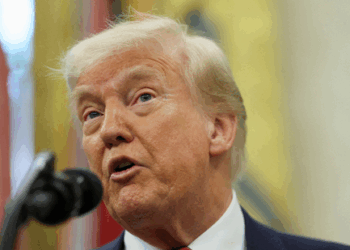As the U.S. election campaign enters its final weekend, both former President Donald Trump and Vice President Kamala Harris are making significant stops in North Carolina, underscoring the state’s critical role in the upcoming election. With polls showing a competitive race, both candidates are using this opportunity to rally support while highlighting their starkly contrasting policy positions.
Trump, campaigning for the Republican nomination, is focusing on themes of economic revival and security. He has reiterated his commitment to tax cuts, deregulation, and strengthening law enforcement. During a rally in Charlotte, he emphasized his administration’s accomplishments in job creation before the pandemic and vowed to restore those gains. “We need to put America first again,” Trump declared, appealing to his base with promises of a booming economy and a tough stance on crime and immigration.
On the other hand, Harris, representing the Democratic ticket, is promoting a platform centered on social justice, healthcare reform, and climate action. Her campaign events have highlighted the importance of investing in infrastructure, expanding access to affordable healthcare, and addressing systemic inequalities. “We are fighting for every American, ensuring that healthcare is a right and not a privilege,” Harris stated during her speech in Raleigh, framing her policies as essential for building a more equitable future.
The differences between the two candidates are stark, particularly on issues like healthcare and the economy. Trump’s approach leans towards free-market solutions and cutting government spending, while Harris advocates for increased government involvement to address health disparities and economic inequality.
Moreover, education policy has emerged as a key point of contention, with Trump promoting school choice and charter schools, arguing that they provide better opportunities for students, especially in underserved communities. In contrast, Harris supports increased funding for public schools and initiatives aimed at reducing student debt, emphasizing the need for accessible quality education for all children.
As both candidates engage voters in North Carolina, the stakes are particularly high. The state has historically been a battleground in presidential elections, and both parties recognize its importance in securing the necessary electoral votes. Polling suggests that the race could be decided by a narrow margin, making the last-minute campaigning crucial.
With less than 48 hours until polls open, the contrasting policies of Trump and Harris are resonating with voters, creating a dynamic environment in North Carolina. As supporters gather for rallies, the candidates are working to solidify their bases and sway undecided voters in what promises to be a highly competitive election.








 India
India












